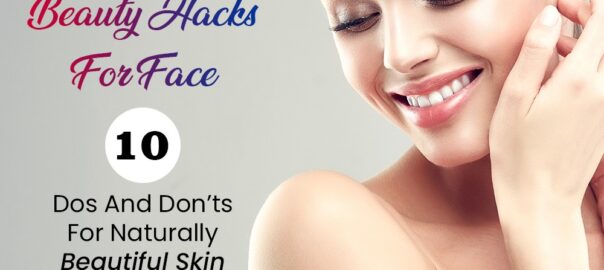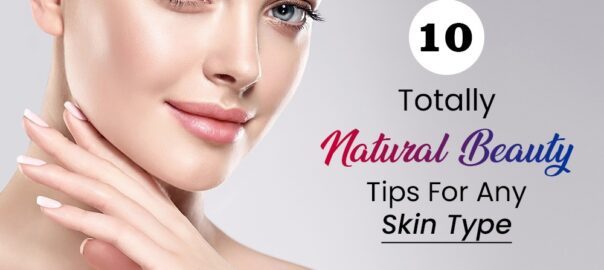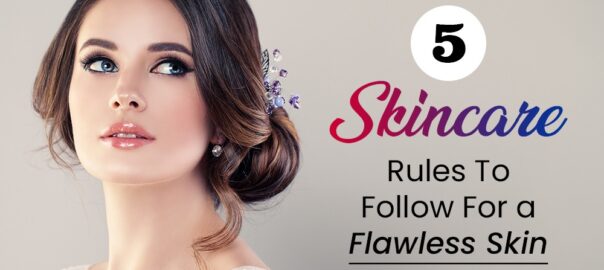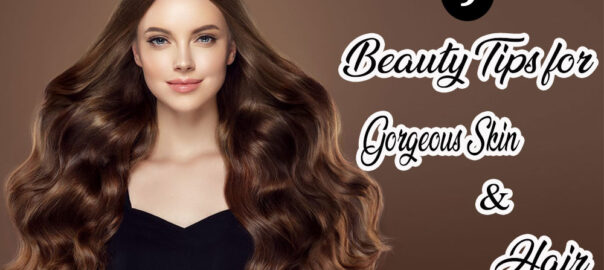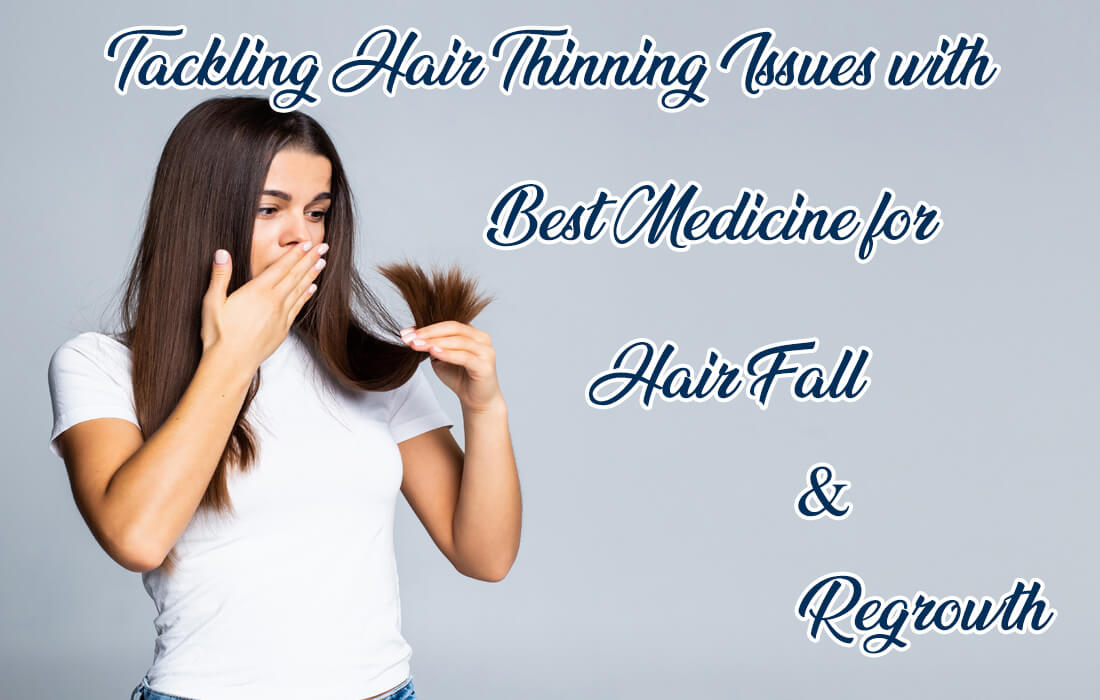
Image by diana.grytsku on Freepik
Hair is often called the crowning glory, a reflection of one’s overall health and personality. It is a matter of unfortunate circumstances that a notable number of people, regardless of gender, will face the issue of hair thinning and hair loss at some stage in their life. It can be distressing, affecting self-esteem and confidence. Fortunately, there are various causes and solutions to address hair thinning and promote regrowth. This guide will delve into the common causes of hair thinning and provide effective solutions, including the best medicine for hair fall and regrowth.
Understanding Hair Thinning:
Alopecia, commonly known as hair thinning, can be attributed to several factors, including genetic predisposition, hormonal imbalances, lifestyle choices, and environmental factors. It can be a distressing and worrisome experience, affecting individuals across different ages. While having a luscious mane is often associated with vitality and attractiveness, various factors can contribute to the gradual loss of hair thickness and volume. To successfully regain your full head of hair, it’s important first to understand the root causes of hair thinning.
Here are some common Causes of Hair Thinning:
Genetic Predisposition
- Hair thinning is a prevalent problem that impacts both males and females, primarily influenced by genetic factors. The predominant reason for hair loss in males is androgenetic alopecia, often termed male pattern baldness. A receding frontal hairline and the emergence of bald areas on the crown characterize this inherited condition. Women can also experience hair thinning, referred to as female pattern baldness. This condition is characterized by diffuse thinning across the scalp.
- Genetics play a role in the sensitivity of hair follicles to dihydrotestosterone (DHT), a hormone derived from testosterone. Over time, the presence of DHT miniaturizes hair follicles, leading to shorter, finer hair strands that eventually cease to grow altogether.
Hormonal Fluctuations
- Hormonal changes can wreak havoc on hair health, especially for women. Pregnancy, childbirth, and menopause are significant life events that bring about hormonal shifts. Elevated estrogen levels prolong the hair’s growth phase during pregnancy, resulting in thicker hair. However, postpartum shedding occurs as hormone levels return to normal, causing a temporary thinning.
- Similarly, menopause marks a decline in estrogen and progesterone, making hair more susceptible to the effects of DHT. Hair thinning among women may arise from hormonal irregularities prompted by conditions like polycystic ovary syndrome (PCOS).
Nutritional Deficiencies
- A diet lacking essential nutrients can impact the health of your hair, leading to thinning and increased shedding. Biotin, a B vitamin, is often associated with hair health due to its role in keratin production, a protein that forms the structural basis of hair.
- Maintaining healthy hair follicles and promoting proper hair growth requires important nutrients such as iron, zinc, and vitamins A, C, and D.
Stress and Illness
- Modern lifestyles often subject individuals to stress, impacting overall health and hair growth. The mind-body connection is real, and stress can take a toll on your hair. Experiencing significant stress, whether physical or emotional, can disrupt the hair growth cycle.
- The condition known as telogen effluvium occurs when many hair follicles prematurely enter the shedding phase due to stress or illness. It can result in generalized hair thinning across the entire scalp, which can be effectively treated with best medicine for hair fall and regrowth male.
- Furthermore, unfavourable lifestyle habits like smoking, excessive alcohol intake, and inadequate dietary choices can play a role in causing hair thinning.
Ageing
- Ageing affects hair growth. As individuals get older, the rate of hair growth naturally slows down with age, and hair strands may become finer and more fragile, leading to reduced hair density and increased hair shedding.
- Additionally, the hair’s natural ability to retain moisture decreases, and the hair strands may become finer and more susceptible to damage leading to dryness and brittleness, resulting in overall thinning.
Environmental Factors
- Exposure to pollution, UV radiation, and harsh weather conditions are environmental factors that can weaken hair strands, leading to breakage and thinning. Every individual should take measures to protect their hair from these external stressors.
Hairstyling Practices
- It can inadvertently contribute to hair thinning through harsh hairstyling practices. Consistent and frequent use of heat styling tools, including hairdryers and straighteners, as well as tightly pulled hairstyles like braids and ponytails, along with chemical treatments like perming and colouring, can lead to a weakened hair shaft.
- Over some time, this can lead to hair breakage and thinning, which can negatively impact the health and look of your hair.
Poor Scalp Health
- Maintaining a healthy scalp environment is crucial for robust hair growth. Conditions like dandruff, scalp psoriasis, and seborrheic dermatitis can disrupt the hair follicles’ normal functioning, leading to hair thinning.
Effective Solutions for Hair Thinning
Hair thinning may cause distress, but there are effective solutions to counter this concern. Whether the underlying cause is genetic, hormonal, or lifestyle-related, addressing the issue earlier can lead to positive outcomes. Here are some solutions for hair thinning:
Nutrition and Vitamins:
- Maintaining a well-rounded diet, teeming with crucial vitamins and minerals, is pivotal in promoting optimal hair growth. The vitamins like biotin are essential in promoting hair health. Biotin is renowned for aiding hair cell development, fortifying hair strands, and diminishing hair loss.
Hair Care Practices:
Developing a well-structured hair care regimen is essential in preventing additional hair loss and fostering the growth of stronger, healthier hair:
- Gentle Hair Handling: Avoid aggressive brushing, tight hairstyles, and excessive pulling, as these can weaken the hair shaft.
- Use Gentle Hair Products: Opt for sulphate-free and paraben-free shampoos and conditioners to avoid stripping the scalp of natural oils. Avoid excessive shampooing, as it can dry out the scalp.
- Limit Heat Styling: Excessive use of heat-styling tools can weaken hair strands. When using such tools, you are applying a heat protectant and using the lowest heat setting.
- Avoid Tight Hairstyles: To prevent hair breakage, avoid stressing hair with tight ponytails or braids that strain the strands. Choose styles that are more relaxed and less demanding.
Lifestyle Changes:
Healthy lifestyle habits can contribute to better hair health:
- Balanced Diet: Incorporate protein-rich foods, fruits, vegetables, and whole grains in your diet to supply essential nutrients for hair growth.
- Stress Management: Stress-reduction techniques such as yoga, meditation, and deep breathing can help maintain a healthy hair growth cycle.
Conclusion:
Hair thinning is a common concern that is often stemming from genetic, hormonal, lifestyle and environmental factors. It is possible to manage and even reverse hair thinning by comprehending the causes and implementing effective solutions. It is a common concern, but it’s possible to address and even reverse the issue with the right approach and guidance. From the best medicine for hair fall and regrowth in females to lifestyle changes and professional treatments, a proactive approach can help restore confidence and provide you with healthier, thicker, and more vibrant hair. Always remember that the journey to combat hair thinning and encourage regrowth requires a combination of consistency and patience.

